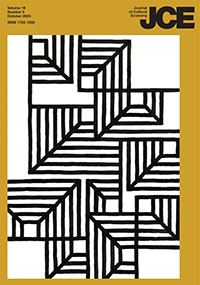Computing trust: on writing ‘good’ code in computer science education
 Tenure-Track Assistant Professor Samantha Dawn Breslin has contributed to the Journal of Cultural Economy with the article 'Computing trust: on writing ‘good’ code in computer science education'.
Tenure-Track Assistant Professor Samantha Dawn Breslin has contributed to the Journal of Cultural Economy with the article 'Computing trust: on writing ‘good’ code in computer science education'.
What does it mean to produce trustworthy code for computer scientists? Based primarily on ethnographic fieldwork in an undergraduate computer science program in Singapore, this article explores what it means for computer science students to write ‘good code.’ In doing so, it explores the values that underlie ideas of trust in the computer science discipline.
Drawing on the work of Rebecca Bryant, this article shows how, as students learn to become ‘good at’ writing code that is technically functional, aesthetically un-individuated, and decontextually efficient, they also learn to become ‘good’ computer scientists. These standards of good code are distributed across human and nonhuman actors and provide a framework for ‘trustless trust’ in code. That is, while computer science often assumes an omnipresence of mistrust, this article argues that the production of ‘good’ code and ‘good’ computer scientists works to build a system of distrust for computer scientists. At the same time, becoming a good computer scientist is intimately intertwined with students’ selfhoods, undermining the foundation of trustless trust even as the ideal of objectively ‘good’ and trustworthy code cuts this contradiction from view.
This article is part of a Special Issue on “Digital Mistrust: Rethinking trust in digitalizing societies” edited by Kristoffer Albris and James Maguire.
Article keywords: computer science, education, trust, personhood, code
Read the article in the Journal of Cultural Economy: https://doi.org/10.1080/17530350.2023.2258887
